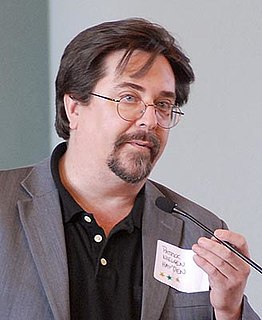A Quote by Vint Cerf
I think exploring the Internet's - and the Web's - ability to facilitate personal linkages is remarkable; and expect to see additional social networking applications and services emerge.
Related Quotes
Broadband connections allow us to access more robust types of content, services, and applications - video chat versus email, or live streaming versus chat, for example. Yet if we look beyond our own personal use, we can see that broadband Internet access is not merely a convenience: it is a powerful force for social change.
What excites me is that, when things are tough, people become resourceful, and now with the Internet, social networking and the ability for people who in the past had been relatively powerless, they have tools to be able to spread ideas and organize. The urgency is there and the tools are there and I think that the possibility for really, really powerful results is there. I think it's all brewing, it's all bubbling up right now.




































